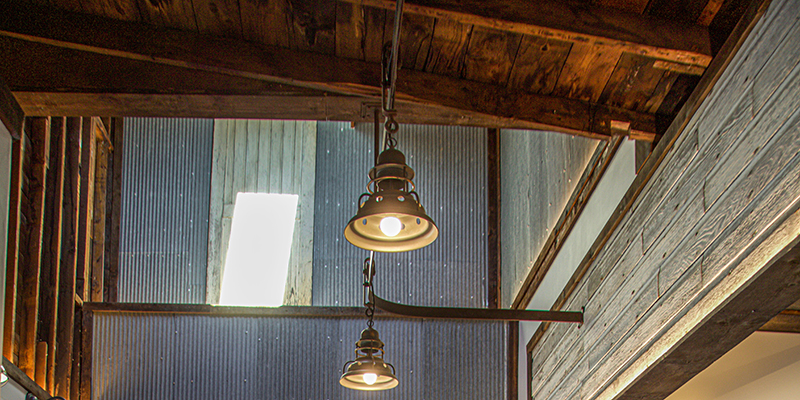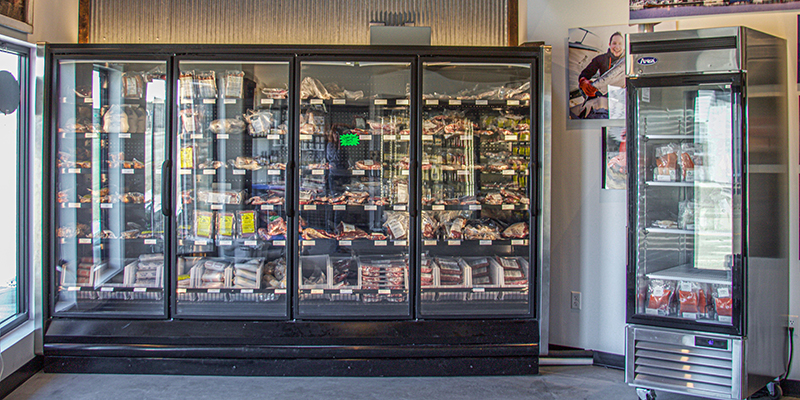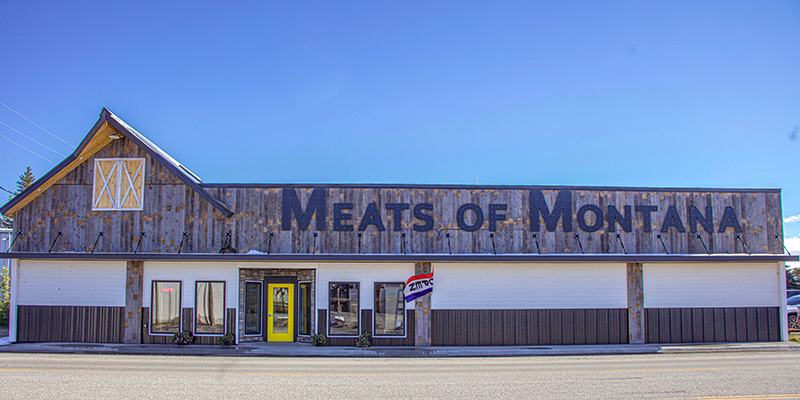Meats of Montana

When Brian and Katy Engle began their meat processing business in Big Timber, Montana, they started it the old-fashioned way, from the ground up. With zero customers or capital, they set up their first facility in a 48-foot semi-trailer located in a horse pasture. Two and a half years later, when they had both customers and cash flow, the couple built a proper packing plant that has continued to grow over the years. Today, Pioneer Meats has a 13,000-square foot packing plant, 28 employees, and a new retail shop, Meats of Montana, on 1st Avenue in Big Timber.
The Engle's success is well-deserved. They work hard, continuously improve their products and processes, and most importantly, treat their employees like family. "That's the way I was raised," Brian says, "To include your employees as part of the family. We believe that what goes around comes back around." The Engle's offer their employees benefits such as a 401K and paid vacation, and in turn, they stick around. "We have minimal turnover," he said. That's saying something for a private sector business with the second-highest payroll in the county.
Another reason for their success is the products themselves. In addition to meat processing, they have their own line of smoked products, Pioneer Meats. Over the years, they have carefully refined their recipes, attending sausage-making schools across the country and judging product shows at meat processing conventions to learn different techniques and flavor profiles. As a result, their sausages are full of flavor but void of things such as dextrose and monosodium glutamate. "We don't use any of those fillers," Brian explains. "We started taking them all out about ten years ago when we were selling our meat at the Farmer's Markets. It was at the request of our customers." Their meats are also gluten-free, and the Engle's are in the process of getting the certification to label them as such.
Their most recent endeavor, Meats of Montana, ironically began during the start of the pandemic. "We try to think 3-5 years out," Brian says, "instead of reacting to what has already happened. So, when COVID hit, we were already expanding." As timing would have it, they were able to finally purchase the building, a former meat shop that had been closed for several years. Before being a meat shop, the two side-by-side buildings were a dairy and a creamery. PPP funds helped the Engles pay employees to stay home when they were sick and helped them keep COVID out of the facility and keep the operation running.
Rather than tear down the building, which needed significant repair, the Engles opted to remodel, utilizing the original lumber, ceilings, and rafters. "Our first option was to level the building," Brian said, "But we didn't want to do that. There's too much history there to just put it in a pile." So now, the historical aspects of the building add to the character in the retail store, which local customers and visitors alike appreciate.

They opened the retail operation on July 2, and Brian says they have been pleasantly busy ever since. True to the name, Meats of Montana carries a variety of local meats; grain-finished beef from Todd Family Meats and grass-finished beef from Cowgirl Meats all have exceptional flavor from their marbling. Another specialty they have been offering is dry-aged steaks. Utilizing both grass-fed and grain-finished New York Strip steaks, they dry-age the meat for 45 days before cutting.
Montana Natural Lamb, which is grain-finished, is available fresh each week and, if demand continues, will continue through the winter. They also have seafood from Sitka, Alaska, and cheese and gelato from small family-run dairies in Minnesota. "There are some great cheeses from Montana," Brian says, "But Earth Wise General Store is already selling them, so we didn't want to duplicate what they are doing."
The Engles even have a specific label for local meats, the 406 brands. If you see the 406 labels, you can be assured the beef, pork, or lamb is locally raised, with the producer's name on the label. "We bought three beef at the county fair last year and put the kids' names who raised them on the label." It doesn't get more home-grown than that.
Speaking of home-grown, the Engles are working hard to support the industry. The past two summers, they have hosted interns from the American Association of Meat Processors. They also have an intern from the Miles City Community College and another on the way from Montana State University-Northern. Engle sits on the steering committee for the program, which teaches the business side of meat processing for those who want to make it a career.
As for what's next, they plan to open game processing in the new location this fall, and when the season ends, they hope to have two more rooms in the back be USDA-inspected processing rooms which can increase their production from the original plant.
There's a lot to be learned from Engle's success story, not the least being the importance of good food, hard work, and a love of community.



